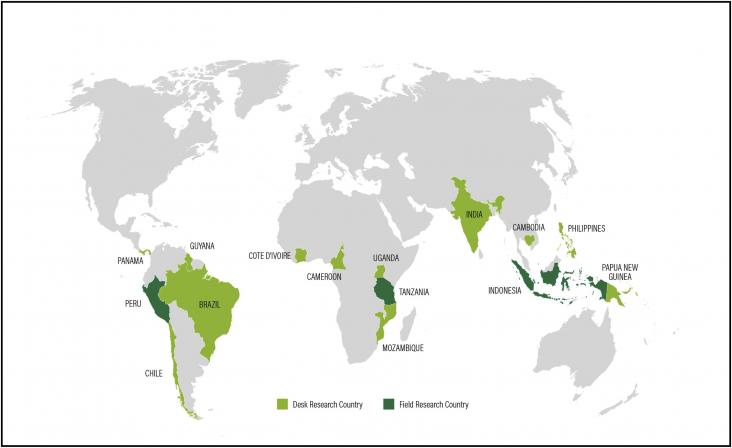This paper looks into the issues around renewable energy with a view to identify the opportunities for Nigeria and critically review the nation's renewable energy policy vis-à-vis the efforts and achievement of governments and indigenous practitioners.
This article supports SDGs 11, 13, and 15 by revealing the threats and damages caused by the changed hydrological ecosystem in Hoh Xil of Tibetan Plateau.
Climate change is both an important social determinant of health (SDH) and a worsening public health threat. Though a warming climate threatens everyone, pediatric populations are particularly vulnerable.
Ethiopia has experienced rapid urbanization over the past three decades. Several cities expanded rapidly and many satellite towns sprung up around the major cities.

Indigenous and community lands, crucial for rural livelihoods, are typically held under informal customary tenure arrangements. This article reviews and maps 19 community land formalization and 14 company land acquisition procedures in 15 countries in Africa, Asia and Latin America. Comparing community and company procedures identifies multiple sources of inequity.
The concept of “Smart City” has been proposed by governments, the business community, advocacy groups, and research institutions as a means to solve common urban problems and improve the quality of
All aspects of sustainable development - biodiversity, food production, water treatment, climate change, energy opimisation - in years to come will capitalize greatly on digitalization.
This article aims to present and discuss the energy and environmental reality in the building sector and critically investigate the future pathways towards its decarbonisation.

Blockchain technology promises to improve the efficiency, transparency, and accountability of humanitarian operations.
Background: Natural outdoor environments including green spaces play an important role in preserving population health and wellbeing in cities, but the number of deaths that could be prevented by incr
